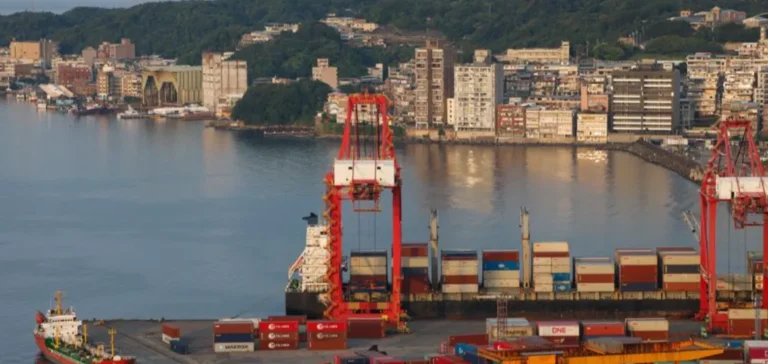The Taiwanese group I-KE International Ocean Energy Co., a subsidiary of Lian Tat Company, obtained in July 2025 the exclusive rights to use Lot C of the Port of Suao for the installation of a pilot unit for wave energy conversion. This allocation follows a public tender organized by the Keelung Branch of Taiwan Port Corporation, as part of a national energy transition program. It is the first time that a commercial port in Taiwan has been officially allocated to a project of this kind.
The initiative is part of a broader strategy for energy diversification. The allocated area — 2.25 hectares on the southern breakwater of the port — is part of a total space of 6.75 hectares divided into three sectors (A, B, C), reserved for wave-based electricity production tests. I-KE will deploy a 100-kilowatt unit developed by Eco Wave Power Global AB, a Nasdaq-listed company specializing in onshore wave energy technologies.
A Pilot Project on a Strategic Site
The pilot project planned for Lot C is based on a turnkey purchase agreement signed at the end of 2024 with Eco Wave Power. It marks a first entry of this technology into the Taiwanese energy landscape. The Port of Suao, located on the east coast and exposed to the Pacific Ocean, benefits from wave conditions considered stable and representative. These characteristics make the site a relevant testing base for evaluating large-scale production.
Zone C could serve as a starting point for the gradual development of wave energy production, with a stated goal of scaling up to 20 megawatts in the medium term. Subsequent extensions could increase the installed capacity to 400 megawatts along the entire Taiwanese coastline, according to scenarios currently being studied by project stakeholders.
A Signal for the Opening of the Asian Market
The tender won by I-KE also marks the formal entry of Eco Wave Power into the Asian market. The partnership with Lian Tat Company and its subsidiary I-KE is presented as a lever for deploying wave energy technology at other coastal sites in the country. The selection of I-KE by Taiwan Port Corporation, following a competitive process, establishes a legal and logistical basis for the installation of experimental infrastructure for commercial purposes.
The entire project is seen as a dual-purpose testing ground: to assess technological viability and evaluate the conditions for industrial deployment across Taiwan. The allocation of Lot C could thus foreshadow the structuring of a domestic market around marine energies, in response to the growing demand for energy diversification and supply security.






















